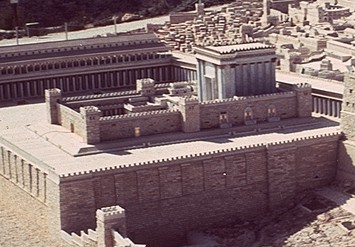
If you hang around liturgical churches at all, or even if you did at another time in your life, the terms Palm Sunday, Good Friday, and Easter Sunday have meaning for you. In the past few decades many Protestant denominations have added Maundy Thursday services as well, usually an intimate gathering to wash feet and share in a Eucharistic meal. It is actually a favourite of mine. Holy Saturday is recognized with an Easter Vigil in some denominations and the congregation I served in Sudbury actually baptized at a joint service with the Anglicans.
The Monday, Tuesday, and Wednesday of Holy Week don't have designations in the same way, but we know that after Jesus rode into Jerusalem before a branch-waving crowd both religious and Roman leaders were on high alert. This was the time of Pesach, or Passover, and the city of Jerusalem was crowded with Jewish pilgrims who were not happy with the Roman occupation. The gospels recount Jesus' provocative action, overturning tables of sellers and lenders in the temple. It was a symbolic act but an attention-getter.

Both Tuesday and Wednesday were "plot-thickening" days when religious authorities were looking for ways to silence Jesus. As much as Christianity has vilified and demonized these Jewish leaders through the centuries, they were in the precarious position of placating both an unsettled populace and Roman overlords. Either group could lead to their ouster or demise.
I need the reminder every year that what happened in the final days of Jesus' life reflects the issues of power, politics, and religious fervour of any time in history. The silent, or at least quiet days of Holy Week have there meaning as well.
Any comments about Holy Week and what unfolded for Jesus?
No comments:
Post a Comment